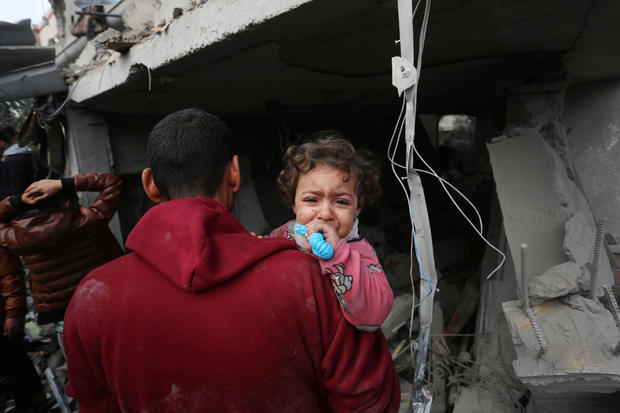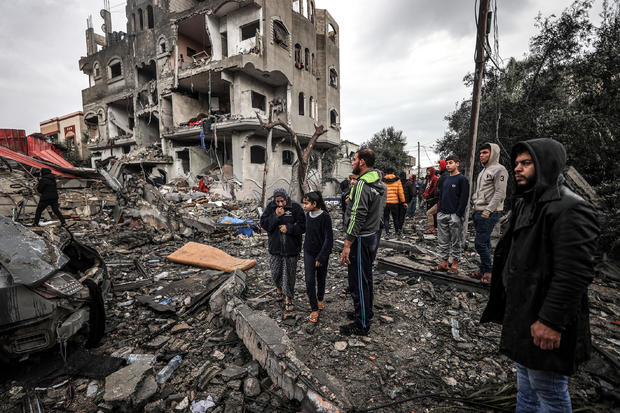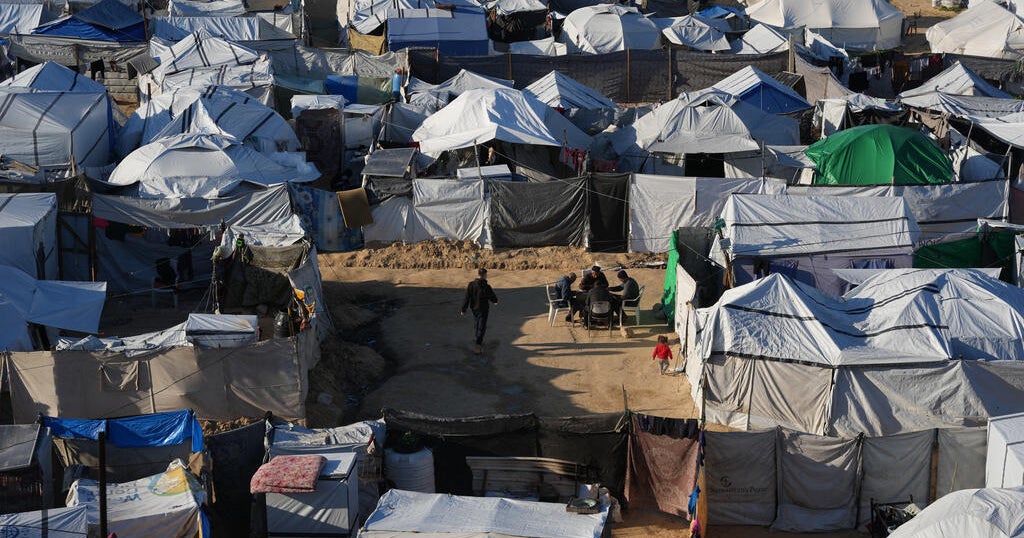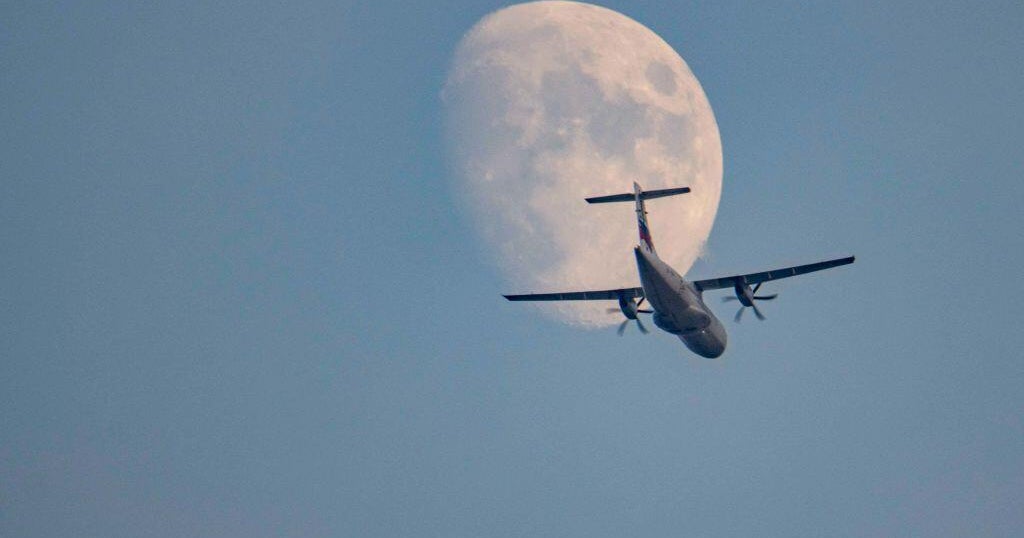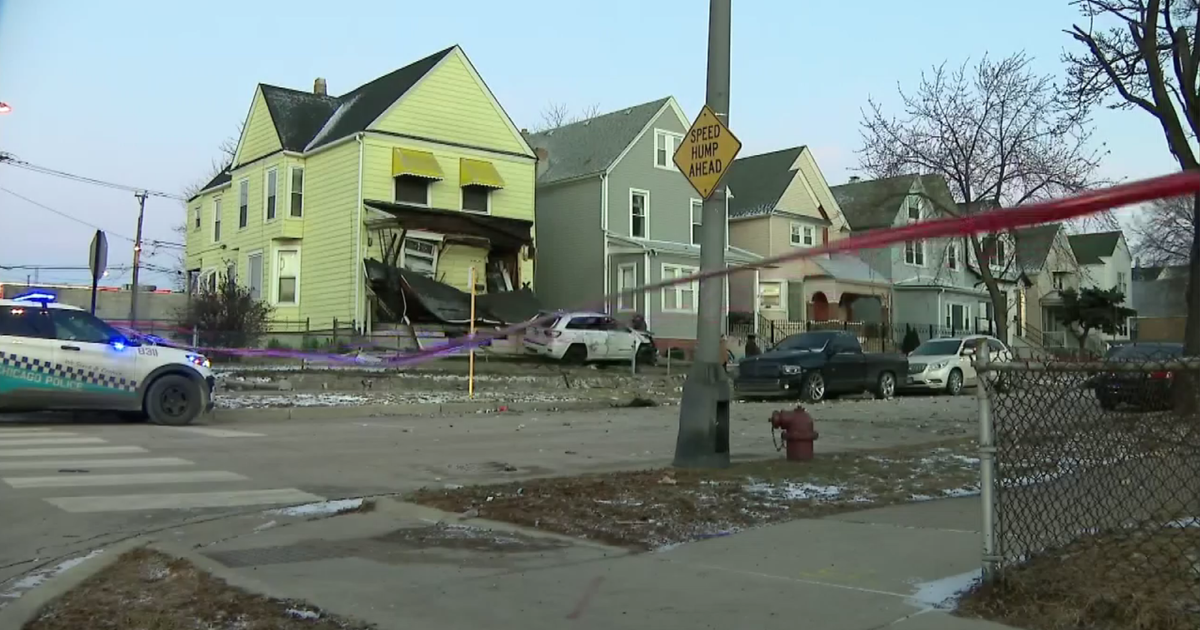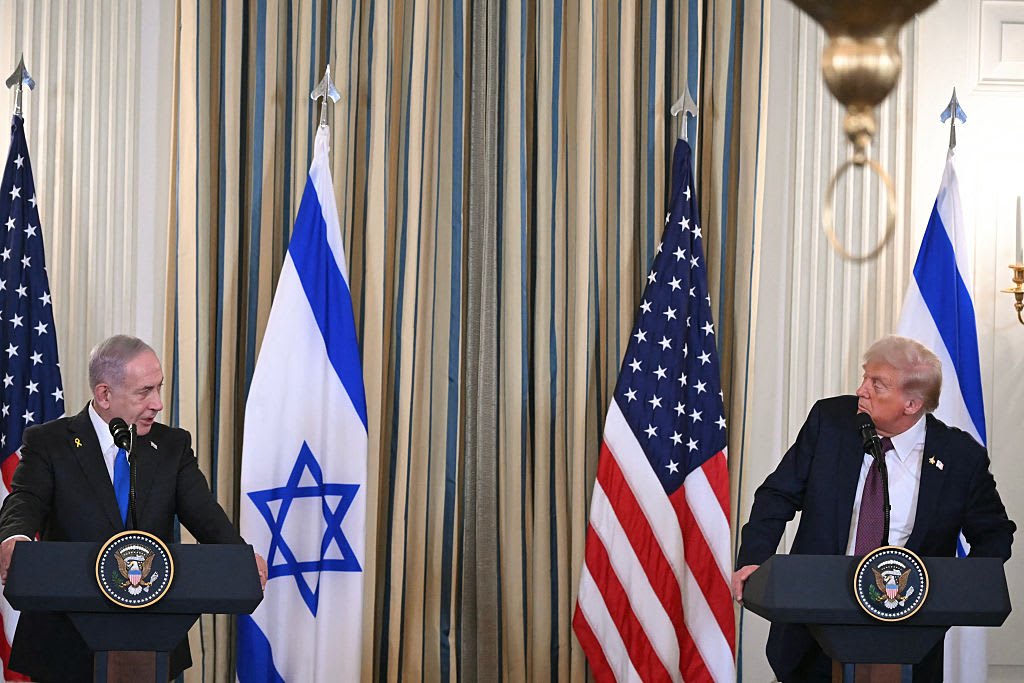No let-up in Israeli airstrikes on Gaza as Christmas dawns
Israel pounded Gaza on Monday, exacerbating the dire conditions for civilians with no end in sight to the war that the Hamas-controlled Gaza Health Ministry says has killed more than 20,000 people in the Palestinian territory.
The health ministry said an Israeli air strike killed at least 70 people on Christmas Eve at the Al-Maghazi refugee camp, the AFP news agency reported. According to the Associated Press, Gaza officials said more than 100 were killed in several airstrikes. Neither figure could be independently confirmed.
It came as Christmas observances in Bethlehem, the revered birthplace of Jesus Christ in the Israeli-occupied West Bank, were largely scrapped amid the conflict, leaving the usually vibrant streets with only a handful of worshippers and tourists.
Pope Francis marked Christmas with a call for peace, urging the release of the hostages and an end to the war.
"My heart grieves for the victims of the abominable attack of 7 October, and I reiterate my urgent appeal for the liberation of those still being held hostage," the pope said during his "Urbi et Orbi" blessing. "I plead for an end to the military operations with their appalling harvest of innocent civilian victims, and call for a solution to the desperate humanitarian situation by an opening to the provision of humanitarian aid."
Israeli Prime Minister Benjamin Netanyahu said Sunday the war was exacting a "very heavy price," as the death toll of soldiers killed in the conflict continued to mount. "But we have no choice but to keep fighting," he said, adding: "This will be a long war."
The Associated Press said efforts were continuing in Egypt, which borders Gaza to the south, to get the sides to agree to another humanitarian pause in the fighting, but no agreement appeared imminent.
Separately, the AP cited a senior Egyptian official and a European diplomat as saying Egypt has proposed an ambitious plan to end the war. The official said the plan, with Qatar's input, calls for a cease-fire, a phased hostage release and the creation of a Palestinian government of experts to administer the Gaza Strip and occupied West Bank. The proposal doesn't meet Israel's goal of eliminating Hamas and apparently doesn't comply with Israel's stated intent to keep military control over Gaza after the war.
The Reuters news agency quoted two security sources in Egypt as saying Hamas and the Islamic Jihad have already rejected our proposal.
The war erupted when Hamas militants broke through Gaza's militarized border and attacked southern Israeli communities on Oct. 7, killing about 1,200 people, mostly civilians, and seizing some 250 hostages. Israel vowed to crush Hamas and launched a retaliatory military campaign in Gaza, including extensive aerial bombardment.
Following the latest strikes on Gaza, rows of victims' bodies, shrouded in white bags, lined the ground at Al-Aqsa hospital in Deir al-Balah, central Gaza, ahead of a mass funeral, AFP reported.
Israel's army said it was "reviewing the incident" and that it was "committed to international law including taking feasible steps to minimise harm to civilians."
The Israeli army said Monday two more of its soldiers had been killed, bringing to 17 the number killed since Friday and 156 since Israel's ground assault began on Oct. 27.
The Gaza Health Ministry said 10 members of one family were killed in an Israeli strike on their house in the Jabalia camp in northern Gaza. In a separate attack, the ministry said 18 people were killed in an overnight strike on Khan Yunis.
There was no respite Christmas Day, with the army saying it continued its ground, air and sea operations and struck several Hamas targets, including commanders.
Before dawn, an Israeli strike "targeting a house" in the central Al-Zuwaida area of Gaza killed at least 12 people, mostly women and children, the health ministry said. AFP was unable to independently verify the tolls.
In southern Gaza, an AFP correspondent reported heavy bombings through the night in Rafah and Khan Yunis. In the north, live AFPTV footage on Monday morning showed a long plume of smoke extending across the horizon.
Grasping empty containers, dozens of Gazans waited on a street in Rafah for food to be distributed.
"We're fed up; this is not a life. I swear such a war has never happened before," said one of them, Nour Ismail. "Now there is real hunger. My children are dying of hunger."
Vast areas of Gaza lie in ruins and its 2.4 million people have endured dire shortages of water, food, fuel and medicine, alleviated only by the limited arrival of aid trucks.
Eighty percent of Gazans have been displaced, according to the U.N., many fleeing south and now shielding against the winter cold in makeshift tents.
The head of the U.N. refugee agency, Filippo Grandi, called for an end to the suffering.
"A humanitarian ceasefire in Gaza is the only way forward," he wrote on X, formerly known as Twitter. "War defies logic and humanity, and prepares a future of more hatred and less peace."
World Health Organization chief Tedros Adhanom Ghebreyesus also renewed calls for a cease-fire, saying, "The decimation of the Gaza health system is a tragedy."
The war has heightened tensions across the Middle East, where Israel faces a range of enemies — Iran-backed armed groups in Lebanon, Syria, Iraq and Yemen that have voiced support for Hamas.
Cross-border fire has erupted almost daily between Israel and Lebanon's powerful Hezbollah movement.
And Yemen's Huthi rebels have fired at cargo vessels in the Red Sea, leading the United States to build a naval taskforce to deter the missile and drone strikes.
Iran on Monday rejected U.S. accusations that a drone strike targeting a Japanese-owned chemical tanker off the coast of India had been fired from its territory. "Such claims are aimed at... covering up for the full support of the American government for the crimes of the Zionist regime (Israel) in Gaza," said foreign ministry spokesman Nasser Kanani.
